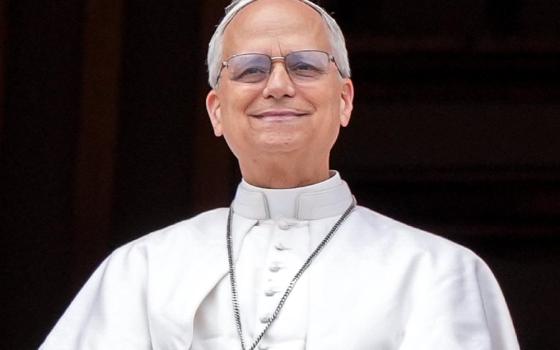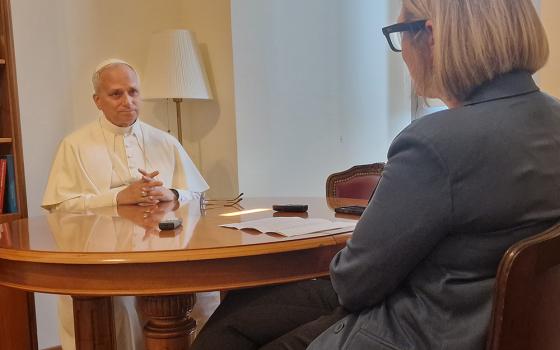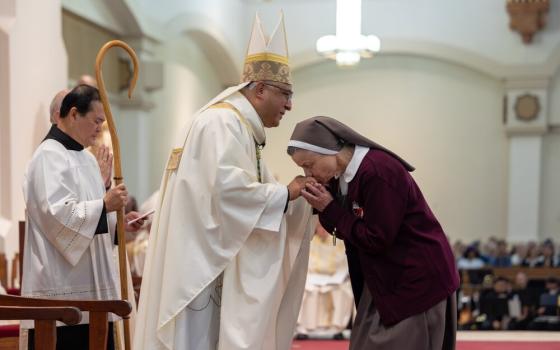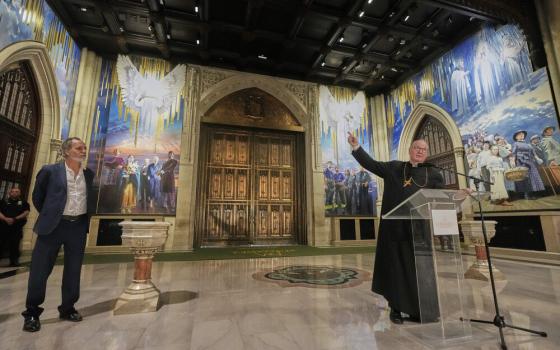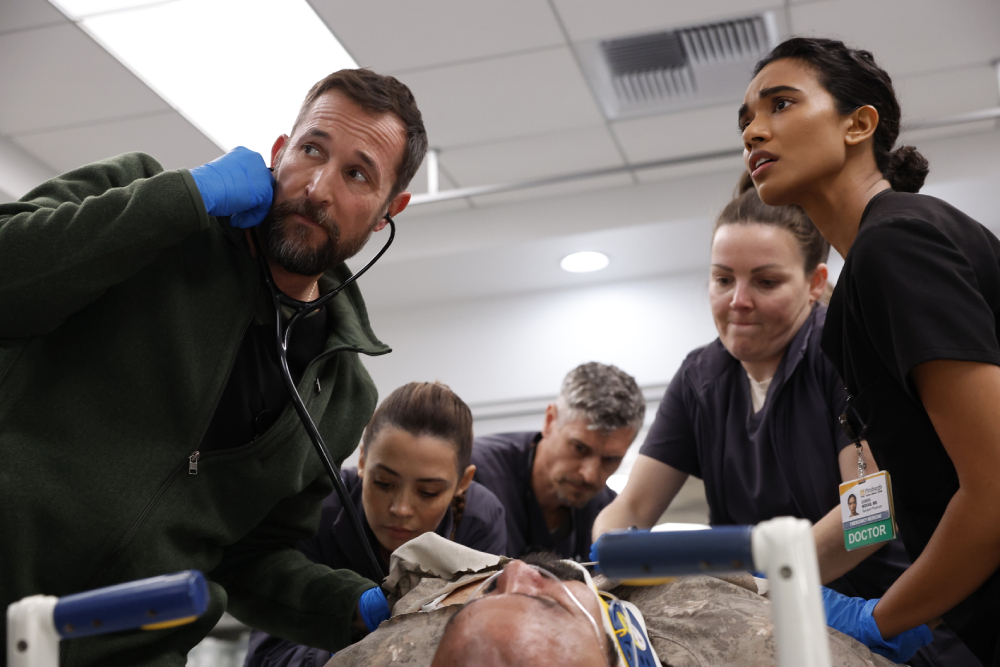
Each episode of "The Pitt" follows one single hour of the same day, as the staff at the emergency room of Pittsburgh Trauma Medical Center deal with bureaucratic, medical and personal issues. (Warrick Page/HBO Max)
When I came down with COVID-19 this summer, I found myself turning to HBO Max's "The Pitt" for comfort. I've stayed away from medical dramas in the past (I don't want to know what my insides look like) and, true to form, I approached the show skeptically. But in no time, its humanism had won me over.
Each episode of "The Pitt" follows one single hour of the same day, and we watch in "real time" as the staff at the emergency room of Pittsburgh Trauma Medical Center deal with bureaucratic, medical and personal issues that somewhat miraculously always weave a narrative arc prompting reflection on things like compassion, resilience and the sacred. What surprised me wasn't just how the series held my attention through 104-degree fever and extreme fatigue, but how deeply consoling the experience became. I binged 15 episodes in two days.
The ordinary as sacred
Bucking expectations of its genre, "The Pitt" avoids the operatic and lingers on the ordinary. Instead of rushing to big emotional scenes where the heroism of doctors can be put on display, the show pauses. The camera sits in deliberate silence as nurses quietly do their job. There is no shouting of indecipherable medical jargon over intense music; in fact, the subtle score by Gavin Brivik does its best to go by unnoticed, camouflaging itself within the beats of the emergency room's machinery and the footsteps of the staff. Instead, the pacing becomes almost monastic. As I lay in bed, too weak to do anything else, it invited me to contemplation.
"The Pitt" gives us the grace of acknowledging that our pandemic trauma isn't over.
In one stirring episode, Dr. Robinavitch, or "Robby," (Noah Wyle) reads aloud a letter written by Dr. Abbott (Shawn Hatosy) to the relative of a deceased patient. There is no miracle recovery, no over-the-top death scene; just the quiet act of bearing witness to someone's grief, of speaking words of comfort and consolation into the deafening silence of loss.
God doesn't enter the room exclusively through stained glass windows and moments of glorious exaltation, but also through a soft voice, reading words of comfort. Slowing down to honor, care and be still during desolation is a sacred thing.
Humor as grace
There were moments during my illness when I had to laugh to keep from crying. Like when I got up from a nap to heat a frozen meal only to discover I had forgotten an uneaten meal in the microwave earlier that day; or when I couldn't muster the strength to open a bottle of vitamins that were supposed to make me feel better. "The Pitt" is a drama often about loss, but it's also a smartly funny show. Comedic relief is well-timed and generous.
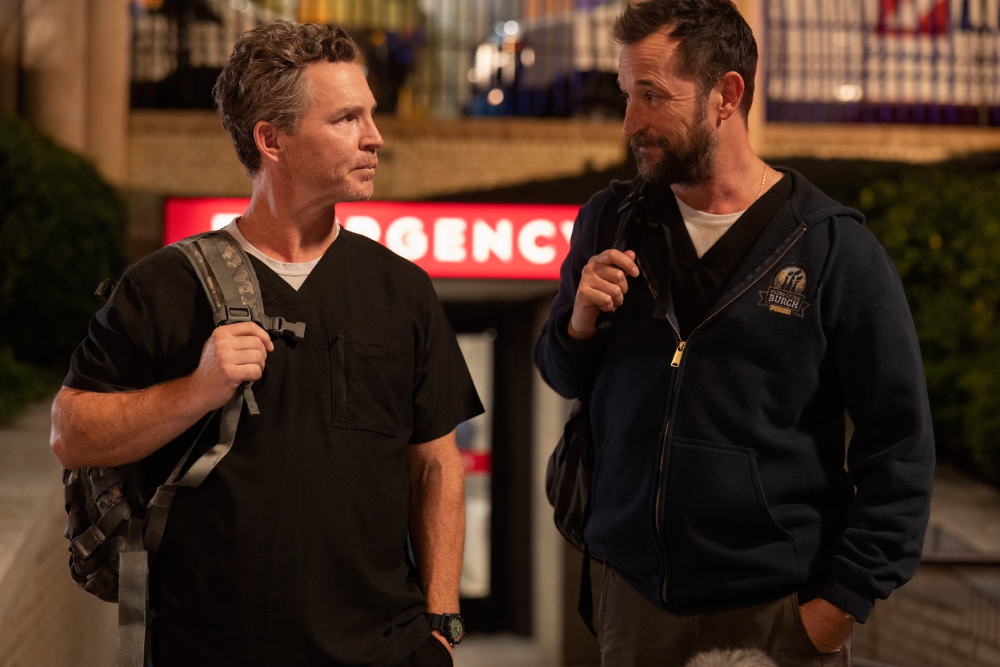
In one stirring episode, Dr. Robinavitch, or "Robby," (Noah Wyle) reads aloud a letter written by Dr. Abbott (Shawn Hatosy) to the relative of a deceased patient, demonstrating the power of the quiet act of bearing witness to grief. (Warrick Page/HBO Max)
I chuckle every time I remember Dr. Abbott removing his prosthetic leg and settling in for a beer after a long work day, or when I recall rats that — having gone loose in the emergency room — provided hilarious jump scares, showing up when least expected. Laughter doesn't cancel out the suffering, but it can sit next to it and keep you afloat.
Community as salvation
COVID is isolating. I spent the better part of a month physically alone, reliant upon supportive messages from loved ones and the kindness of delivery workers who brought me the sustenance I needed to stay fed and hydrated. No one can make it alone, and "The Pitt" portrays this in endlessly moving ways.
In one episode, an "honor walk" for a teenage organ donor brings the entire emergency room to a standstill. In another, one of his colleagues pulls Robby from the brink of hopelessness. "The Pitt" says out loud what we sometimes deny: when the load becomes unbearable, it's OK to let someone else carry it for you.
Advertisement
News cycles may have moved on from COVID, but it is still rampant worldwide, debilitating people like me for weeks on end — or worse. "The Pitt" gives us the grace of acknowledging that our pandemic trauma isn't over: the death of his mentor to COVID has reshaped Robby to the point where he's sometimes unrecognizable to himself, but we also witness how the hardships of the pandemic strengthened the bonds between patients, doctors and staff.
"The Pitt" insists that even in our loneliest, darkest moments there are glimmers of grace in the hands of those delivering our meals, sharing a funny meme, or in the sacramental silence of paying attention. I hope this show receives its just rewards this weekend at the Emmys, but even more than golden trophies, this is a series worthy of praise for its spiritual lessons. There is more to life than suffering; there is always abundant grace, the bond of community, and a little laughter waiting in the wings.

